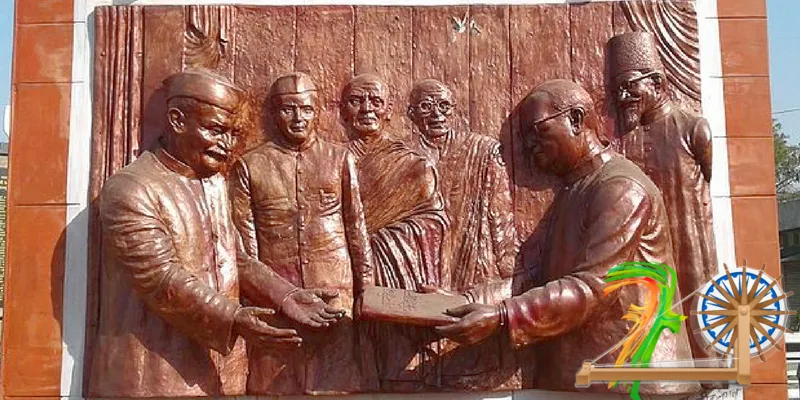Rise of Dalit identity in Independent India
The drafting of the constitution was a watershed moment for the disadvantaged caste groups in the country.

The freedom struggle and the independence movement not only paved the way for the ousting of the British and colonialism, but, it also marked the beginning of an end of ‘untouchable’ India. The past 70 years has empowered the lower caste and today, a sense of pride looms large among the Dalit community.
They are no longer plagued by their birth status. Rather as Lord Bhikhu Parekh, political theorist and Labour member of the House of Lords, United Kingdom recalls - the drafting of the Indian constitution was a watershed moment for the disadvantaged caste groups.
The Manu Smriti became the Bhim Smriti. The image of Dr BR Ambedkar, born in a low caste Mahar community, dressed in a three-piece suit holding the constitution in his hand was symbolic. He said: ‘I give you, your freedom charter. I give you, the entitlement of the republic. I have charted your path for the next 100 years; that is the constitution I have given.
Untouchability in Independent India
There was a time when the mere touch of an ‘untouchable’ was considered polluting, and mandated a shower after. Today, India is governed by a Dalit President and an Other Backward Caste Prime Minister. And this marks the transformation the country has witnessed in the past 70 years.
“This enormous cultural change has to be explained. And this has come about partly because of Dalit assertion and partly because of high caste liberals’ change of attitude. Untouchability, although it still exists, is soon disappearing,” Lord Parekh explains.
Dalits are in important positions of power where they can make decisions and bring political and social changes. This empowerment has in turn contributed to self-respect and pride, following which this historically disadvantaged group has been able to affirm that high caste individuals can no longer take certain liberties with them.
The assertion that, I am Dalit and proud of it, is very hopeful and is an important change. Dalit assertion for human dignity requires recognition. We should avoid the mistake of homogenising Dalit opinions; the Dalit struggle must account for plurality of views, he adds.
Changing power scales
However, the changing power structure is leading to resistance and some degree of violence. The upper caste Hindu upon whom the power is exercised will say, ‘I am a Gujarati and he is showing me off! He is telling me what to do.’
Given that the Indian constitution mandates equal rights and powers to all citizens of India irrespective of caste, creed or religion, sex or gender - oppressive violence is no longer a viable option. Lord Parekh says that violence is more subtle today with the disadvantaged community on a defensive, nervous mode.
Constitution lays the foundation for equal India
The drafting of the Indian constitution was a defining moment in world history, because not only did it abolish untouchability but it was also drafted by an untouchable.
The statue of Ambedkar holding a copy of the constitution will go down in my memory and in the memory of every Indian as the greatest moment in our history, the Padma Bhushan awardee says.
Further, the Scheduled Castes and the Scheduled Tribes (Prevention of Atrocities) Amendment Act, 2015, is a great force in tackling violence of the caste Hindus against minority groups. The Act places the onus of proof on the accused and not on the victim. Stating that this Act checks upper caste violence he says, “If the Dalits think that it is an attack on him he is being attacked because of his caste, then that is enough. A Dalit’s self-belief is considered conclusive. That I think is a great moment.”
The constitution upholds not just liberty of thought, belief, equality, and justice but places emphasis on human dignity, and fraternity. This blueprint marks the sense of nationhood which in turn advocates a plural, inclusive India.
He adds, “Unlike other countries, the constitution was drafted first and then the preamble; the principles of the constitution. And the way forward is to build on Dr Ambedkar’s thoughts and incorporate policy interventions that have a pan-Indian impact.”
Enter the SocialStory Photography contest and show us how people are changing the world! Win prize money worth Rs 1 lakh and more. Click here for details!







